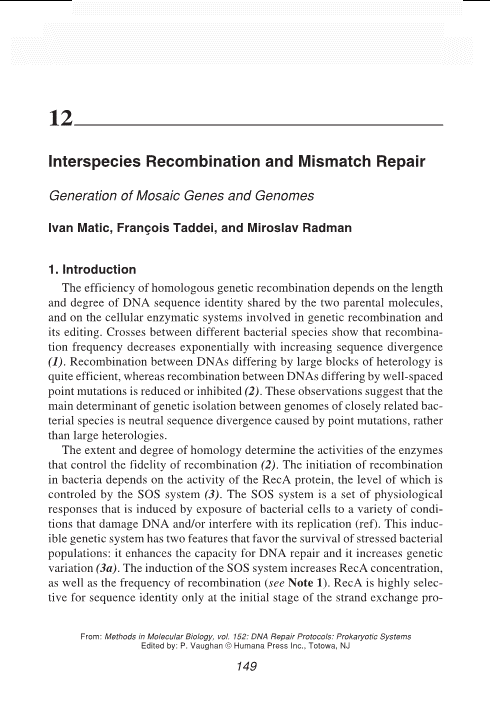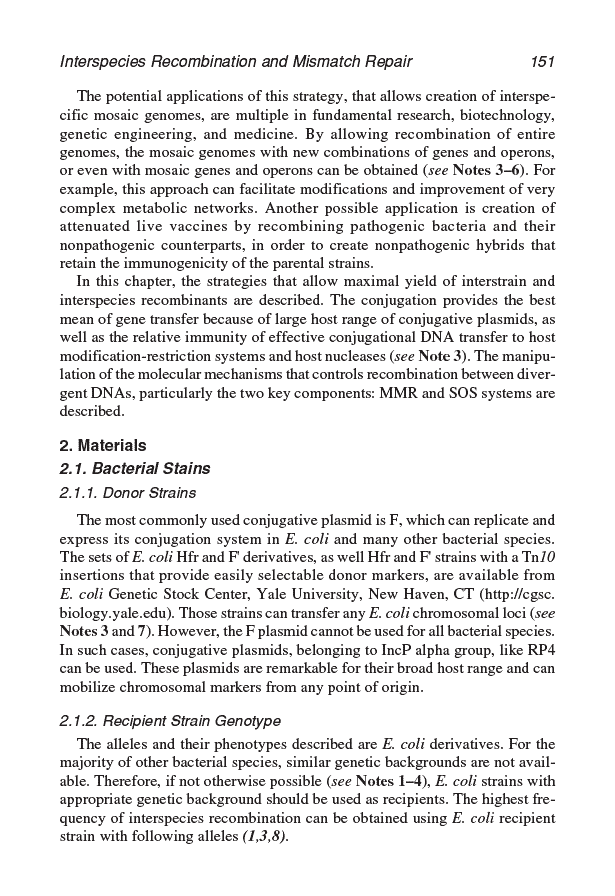Interspecies Recombination and Mismatch Repair
Generation of Mosaic Genes and Genomes
Abstract
The efficiency of homologous genetic recombination depends on the length and degree of DNA sequence identity shared by the two parental molecules, and on the cellular enzymatic systems involved in genetic recombination and its editing. Crosses between different bacterial species show that recombination frequency decreases exponentially with increasing sequence divergence (1). Recombination between DNAs differing by large blocks of heterology is quite efficient, whereas recombination between DNAs differing by well-spaced point mutations is reduced or inhibited (2). These observations suggest that the main determinant of genetic isolation between genomes of closely related bacterial species is neutral sequence divergence caused by point mutations, rather than large heterologies.

...

...


